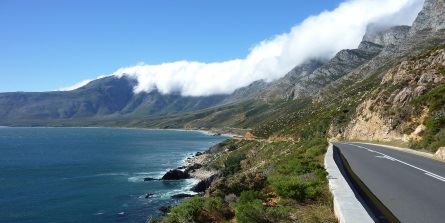The German market is once again buoyant, writes Michelle Colman, and showing interesting new leanings.
The German market to South Africa, currently serviced by some 274 tour operators, is highly sophisticated and mature, according to Theresa Bay-Müller, SA Tourism’s Country Manager Germany.
The travel agency network is a significant point of sale for prospective German travellers to South Africa, as well as their point of information. While an online presence is deemed significant to draw clients into the sales process, fewer than 10% of total market sales are concluded online.
Currently, South Africa is enjoying encouraging growth in German arrivals, which for the first eight months of 2016 are up 21%, translating to 174 163 tourists. SA Tourism’s German office expects a 10% growth for the year. Experts credit the main reasons for this being value and the perception of safety.
On the downside, increased demand has resulted in a shortage of German-speaking guides. “Germans do like being looked after in their own language, and having someone to meet them, guide them and/or as an emergency contact in German is critical,” Thomas advises.
Theresa Bay-Müller, SA Tourism’s Country Manager Germany believes this factor is retarding market growth. “In many cases additional tours could have been opened, yet due to lack of German-speaking guides, tour operators could not further grow sales to South Africa,” she says.Bay-Müller says the exchange rate, hovering around R15 to the euro, has resulted in eye-catching entry prices, counteracting the impression of South Africa as long-haul and therefore expensive. The value on offer has attracted a whole, new clientele, she says, that previously would not have considered South Africa.
André Thomas, Senior Product Manager for Africa at FTI Touristik, says the exchange rate has removed a significant barrier to entry for first-time visitors, and the “I can’t afford it” excuse no longer applies. His colleague, Kathrin Reimann, Product Manager Africa, points out that the German travel market is very price sensitive, but at the moment “South Africa is in trend.”
Over and above this, a number of destinations well-patronised by the Germans now suffer the real threat of terrorism, hence a shift in destination focus. “Within this framework, new opportunities arose for South Africa and new players,” comments Bay-Müller.
SA Tourism also took advantage, and from November 2015 to March 2016 the German office ran a large-scale cinema campaign around the blockbuster film Der Geilste Tag (The Most Beautiful Day), partially filmed in Africa. Since April 2016 a witty video campaign starring a famous TV icon has also been on the go. Such campaigns, says Thomas, keep South Africa consistently top of mind in the German market.
Older travellers; more funds

Bay-Müller says that with Germany’s aging population, the importance of the 50+ age group, or Best Agers, is increasing. They spend 12% more on travel than other age groups taking trips abroad, and take on average an extra two nights away. “The age group 50+ also holds 55% of the total German holiday expenditure. In 2015, the travel intensity of Best Agers between 50 – 64 years and 65+ increased by 7% each.”
At the same time, the number of single German travellers has increased by 10%, and that of nuclear families with one child by 12%. Further, those between 20 – 34 years are showing a stronger lust for travel with a 15% increase. “Herein lies a great chance for sellers to adapt their offers to these specific target groups and fulfil their needs in order to sell more trips to South Africa,” comments Bay-Müller.
Travelling less; seeing more

Reinhart Mecklenburg, Director of AfroSales Tourism Marketing Services in Germany, says while first timers will still support “rush-rush Cape-to-Kruger” 44-seater coach tours, travellers with a higher budget prefer escorted tours with no more than 10 -12 passengers, offering innovative itineraries without being rushed.
This ‘slow travel’ trend of “travelling less; seeing more” is fast catching on, says Mecklenburg, with a focus on special moments, being comfortable, experiencing a well-managed environment, witnessing and practicing social responsibility and enjoying culinary pleasures. Concentrating on fewer regions and roads less travelled, utilising owner-run and fair trade-certified accommodation and self-drive options also fit the bill. A quality guide with a depth of knowledge and good communication skills is more important than language skills.
Late booking pattern emerges

Consciousness of exchange rate fluctuations could be the reason for one widely-reported German market trend – late booking. Passengers hold back on reservations to the last minute for possible currency exchange benefits.
States Kathy Davies, International Sales Manager of Legacy Hotels and Resorts: “The Germans are booking later, giving less notice to travel. In the past they booked many months ahead. The reason for this is watching the exchange rate and any ‘troubles’ in the areas they want to travel to”.
“Over the last couple of months we have definitely noticed an increase in 'last minute bookings' for our tours, which is not the norm,” says Christiaan Steyn, Marketing Manager of Drifters Adventure tours. “Traditionally our clients book tours three to six months in advance as Africa is not really a destination you would expect people to book on short notice. However, there is definitely a positive increase in guests that now book trips three to six weeks in advance.”
Your Africa has also taken note of the shortening lead time for bookings. Sales and Marketing Director Suzanne Benadie says clients are travelling more spontaneously and are making more frequent, but shorter trips. “We are currently still confirming bookings for November and December out of the German market,” she states.
However, both Dirk Brunner, MD of Africa Tours Individuell GmbH and Andrew Iles, MD Ashtons Tours, Safaris and Shuttles, have seen longer lead times, something Brunner attributes to stretched availability as a result of increased demand.
Other trends: bush breaks, culture and action

Other growing trends according to Mecklenburg are vegan travel, glamping and ‘blitz visits’, which he describes as three-or four-day bush breaks, and back home. “The latter will very probably increase significantly. Branded 5-star properties will benefit mostly and the majority of bookings will be processed online as well as – you will be surprised – via corporate travel agents.”
Brunner notes increased requests for special activities in the adventure and cultural spheres such as motorbike riding, shark cage diving and cooking lessons.
Trish Faber, Account Manager at Southern Spoor Marketing, which is part of the SAB World of Beer’s external marketing team, says current trends include support for fair trade tourism, as well as an orientation towards family travel and active holidays.
“The latest trend indicates that German travellers would like to experience more countries during one trip, therefore there is a huge demand to travel from South Africa via Botswana to Namibia ending in Cape Town,” says Fanie van Zyl, MD of SA Coach Charters and Bus Rentals. “Also included is Victoria Falls. Although such a tour is tedious due to the long distances, they find it appealing to experience four countries on one tour.”























